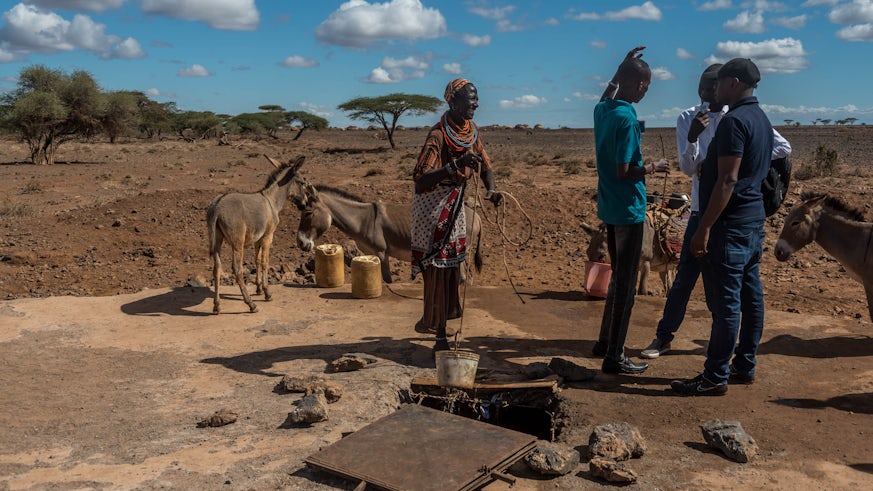Maths expertise part of major international project to tackle climate change resilience in the Horn of Africa
12 November 2020

An international team of researchers and organisations has been awarded over €6.7M from EU Horizon 2020 to help tackle food and water insecurity in the Horn of Africa Drylands.
Led by scientists at Cardiff University – including expertise from the School of Mathematics - with substantial contributions from 14 other partners in 7 countries, the EU project, called DOWN2EARTH, will take state-of-the-art seasonal forecasts and decadal projections of climate change and translate them into clear and concise information that can be used by farmers and pastoralists, communities, NGOs and governments to mitigate the negative impacts of climate change on rural livelihoods.
A major component of DOWN2EARTH involves improving the accuracy of forecasting climate variability in critical rainy seasons and assessing its impact on the total amount of water stored in soils for agriculture and deeper underground for drinking water supplies. This improved forecasting will help to better predict impacts on farming, food and water production and increase resilience across this extremely vulnerable region, allowing the population to make better, more informed decisions.
Prof. Owen Jones from the School of Mathematics will be applying his expertise in rainfall modelling to construct a flexible simulation model capable of delivering spatial-temporal fields of rainfall at high resolution that will drive a hydrological model incorporating runoff, focused and diffuse recharge of groundwater, soil moisture, and evaporation.

“The model will be parsimonious enough that it can be fitted using reliably available data and will be implemented efficiently so that simulation experiments can be used to characterize the uncertainty arising from climatic stochasticity.”
A key aspect of DOWN2EARTH will be the support given to multi-level stakeholders to expand their knowledge of the climate and to better use information that is gathered from climate monitoring and predicting systems.
The Horn of Africa drylands in Kenya, Somalia, and Ethiopia, is one of the most food insecure regions on Earth. The rural communities of the region are particularly vulnerable to food insecurity and associated economic losses during drought conditions due to low socio-economic levels and limited ability to respond to these climatic shocks.
The DOWN2EARTH project will also assess the socio-economic dimensions and human dynamics of climate change including feedbacks between climatic shocks, human behaviour and policy implementation.
Ultimately, DOWN2EARTH aims to strengthen regional climate services through capacity building, citizen science, information dissemination, expansion of data networks, and policy implementation.
Part of this work will be undertaken by project partner, BBC Media Action. Building on their established media partnerships and climate adaptation work in the region, the charity will develop and train journalists from local radio stations to produce accurate and accessible programmes that address issues of climate change adaptation.